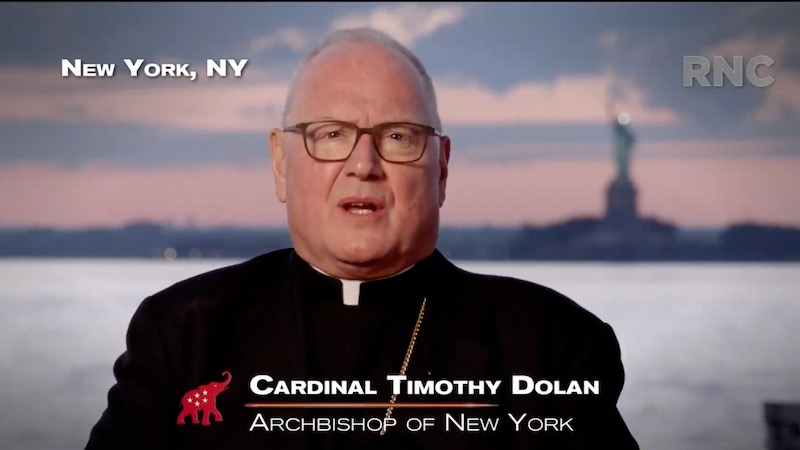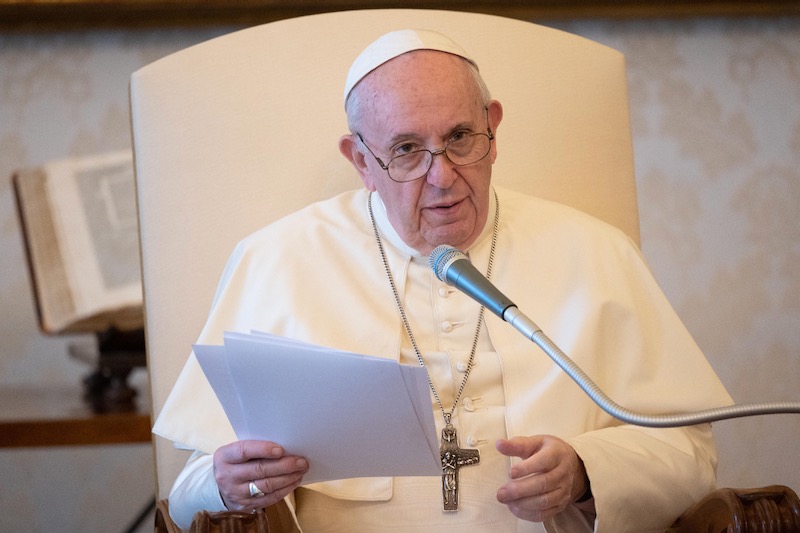The images of children going without food or education during the pandemic must make us understand the need for change, Pope Francis said today.
Speaking at his General Audience in the fourth of his series, Healing the World, relating Catholic social thought to Covid-19, Pope Francis said that in the face of the pandemic and its social consequences, many are in danger of losing hope.
“The pandemic has highlighted and exacerbated social problems, especially inequality. Some may work from home, while for many others this is impossible. Some children, despite the difficulties, can continue to receive a school education, while for many others it has stopped abruptly. Some powerful nations can issue money to deal with the emergency, while for others this would mean mortgaging the future.”
These symptoms of inequality reveal a social disease, he said, describing it as “a virus that comes from a sick economy” and “the fruit of inequitable economic growth” that has taken place independent of fundamental human values.
“In today's world, a few of the very rich have more than the rest of humanity,” he said. “I repeat this because it will make us think: a few very rich, a small group, have more than all the rest of humanity. This is pure statistics. It is an injustice that cries out to heaven.”
He warned that as a result of this economic model, humanity is close to the limits of the planet, with serious and irreversible consequences such loss of biodiversity, climate change, rising sea levels and the destruction of tropical forests.
“Social inequality and environmental degradation go hand in hand and have the same root, that of the sin of wanting to possess, of wanting to dominate brothers and sisters, of wanting to possess and dominate nature and God himself. But this is not the design of creation.”
The transformation of money and property into ends in themselves, rather than as tools, had led to the emergence of individualistic and calculating homo œconomicus.
“We forget that, being created in the image and likeness of God, we are social, creative and supportive beings, with an immense capacity to love. We often forget about this,” he said.
“When the obsession with owning and dominating excludes millions of people from primary goods; when economic and technological inequality is such as to tear the social fabric; and when addiction to unlimited material progress threatens the common home, then we cannot stand by. No, this is bleak. We cannot stand and watch.”
The world is in crisis and will never be the same again, he warned. It will emerge from this either better or worse.
“After the crisis, will we continue with this economic system of social injustice and contempt for the care of the environment, of creation, of the common home?”
He urged hope to inspire a healthier and more equitable world.
“Read the statistics: how many children, today, are dying of hunger because of a poor distribution of wealth, because of an economic system as I said before; and how many children, today, do not have the right to school, for the same reason. May it be this image, of children in need of hunger and lack of education, which helps us to understand that after this crisis we must come out better.”
Read Christopher Lamb's analysis of the Pope's series of General Audience teachings on Catholic Social Thought and the pandemic.



 Loading ...
Loading ...